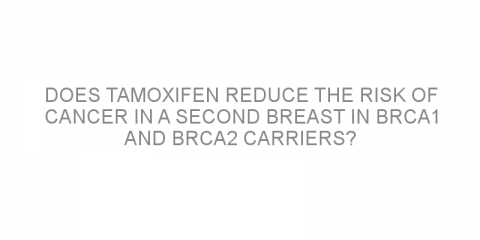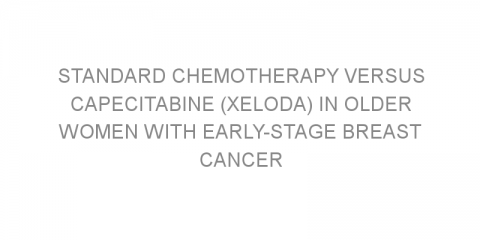In a nutshell In this phase 3 clinical trial, two types of adjuvant (a treatment given in addition to a main treatment) chemotherapy regimens were compared in women with node positive breast cancer after surgery to remove the cancer. These were the combination of docetaxel (Taxotere), doxorubicin and cyclophosphamide (TDC) or the combination of...
Read MoreTreatment(s) already received-Breast reconstruction Posts on Medivizor
Comparison between two techniques of breast surgery: 20-year follow-up
In a nutshell This study compared breast cancer recurrence rates and overall survival between women treated with breast-conserving surgery versus radical mastectomy. Results showed that in the case of small tumors, breast-conserving surgery is the recommended option. Some background Most patients with breast cancer have surgery to remove the...
Read MorePostoperative radiotherapy prevents breast cancer recurrence and prolongs survival
In a nutshell This study evaluated if strategies to prevent cancer recurrence are associated with prolonged survival 15 years after treatment. Their main findings were that postoperative radiation managed to prevent cancer recurrence and was associated with higher rates of long-term survival. Some background Early breast cancer is often treated...
Read MoreBenefits of post-operative chemotherapy according to hormone receptor status
In a nutshell This study compared the benefits of chemotherapy according to hormone receptor status. The main findings were: In cancers without hormone receptors, the benefits of adding chemotherapy were significant; In cancers with hormone receptors, chemotherapy only offered modest improvement. Some background Some...
Read MoreDoes Tamoxifen reduce the risk of cancer in a second breast in BRCA1 and BRCA2 carriers?
In a nutshell The risk of breast cancer is high (~80%) in women who inherit a damaged (mutated) gene called BRCA1 or BRCA 2 (‘BRCA carriers’). Following the first diagnosis, their risk of developing another tumor in the second breast within 10 years is 30%. Some background Some types of breast cancer need estrogen (female sex...
Read MoreStandard Chemotherapy versus Capecitabine (Xeloda) in Older Women with Early-Stage Breast Cancer
In a nutshell This trial compared standard chemotherapy regimens and Capecitabine (Xeloda) in women over 65 years old. The main outcome was that standard chemotherapy worked better in this age group. Some background Capecitabine is generally used in breast cancer resistant to other chemotherapy. It is also the first approved treatment that can be...
Read More







